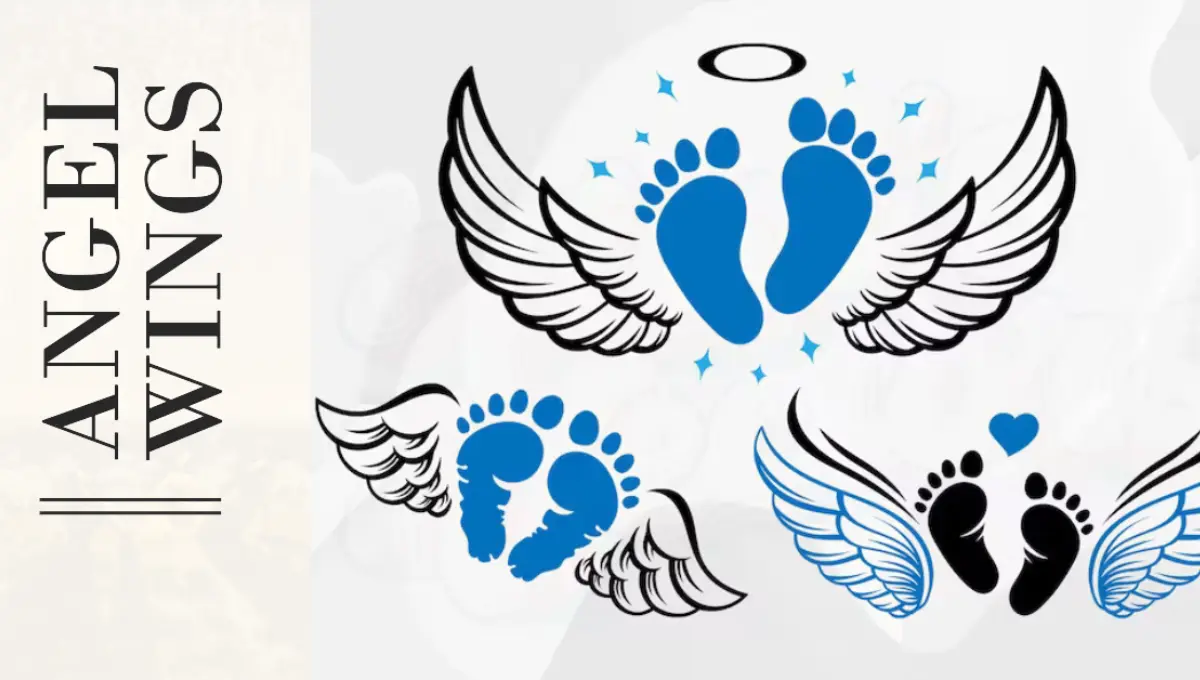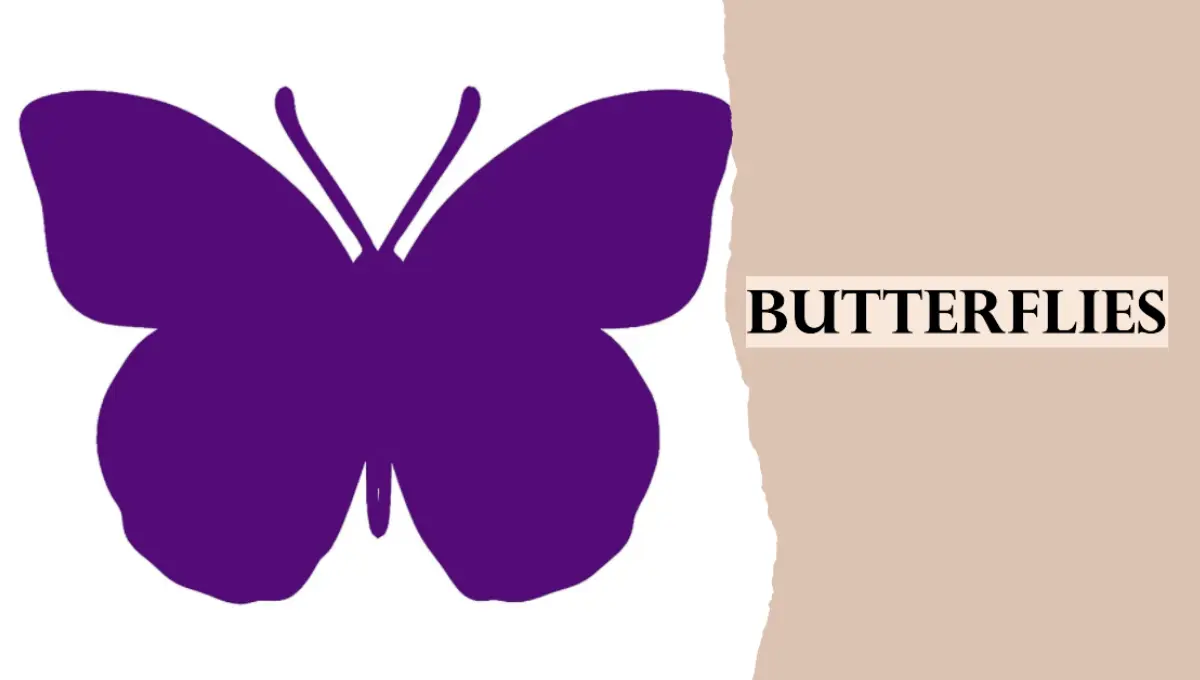
Miscarriage can be a difficult experience for anyone involved. In the midst of such pain, finding ways to express and cope with these emotions can be challenging. One avenue that has offered solace and meaning to many is the language of flowers. Each bloom carries its own symbolism, and in this article on PregnancyBoss, we’ll delve into which flowers symbolize miscarriage, offering a way to convey complex emotions when words often fall short.
Which 8 flowers symbolize miscarriage?
Flowers have always held a significant place in human emotions and expressions. Their beauty, fragility, and fleeting nature mirror the delicate aspects of life itself. When it comes to miscarriage, selecting the right flowers can provide a powerful channel for acknowledging loss, expressing grief, and offering comfort.
Roses: Symbolize love and remembrance
Roses, with their timeless beauty, are often associated with love and affection. In the context of miscarriage, white roses can convey purity and innocence, while red roses can symbolize deep love and respect for the life that was lost. Including roses in a memorial or a gesture of support can help communicate emotions that words might not capture fully.
Lilies: Represent elegance and serenity
Lilies are known for their elegance and serenity. The white lily, in particular, carries associations with restored innocence after death. Presenting lilies as a tribute can represent the hope for healing and renewal after the pain of miscarriage.
Forget-Me-Nots: Symbolize lasting memory and remembrance
As the name suggests, forget-me-nots are a poignant choice for commemorating a miscarriage. These delicate blue blooms represent lasting memories and true love. Sharing forget-me-nots with someone who has experienced a miscarriage can convey the message that their loss will never be forgotten.
White Chrysanthemums: Associated with death and grieving
Chrysanthemums are often used to honor and remember those who have passed away. These flowers are associated with grief, but they also embody the beauty of life’s cycle. Choosing chrysanthemums as a tribute can be a meaningful gesture of remembrance.
Daisies: Symbolize new beginnings
Daisies are often linked to new beginnings and the circle of life. Their simple and cheerful appearance can be a gentle reminder that even in the face of loss, life continues to move forward. Sending daisies to someone who has suffered a miscarriage can offer a sense of hope amidst sadness.
Orchids: Represent strength and resilience
Orchids represent strength, resilience, and the ability to endure hardships. These intricate flowers can convey the message that even in the face of adversity, there is beauty and strength within. Orchids can be a symbol of encouragement for someone navigating the challenging journey of miscarriage recovery.
Carnations: Symbolize love and fascination
Carnations come in various colors, each carrying its own significance. Pink carnations express gratitude for the love that was shared, while white ones symbolize pure love and innocence. These versatile flowers can convey a range of emotions and can be a thoughtful way to show support.
Baby’s Breath: Symbolize the short-lived nature of a pregnancy
Baby’s breath is a delicate flower that is often used as a filler in floral arrangements. While it is commonly associated with young love, new beginnings, purity, and innocence, it can also symbolize miscarriage. The flower’s symbolic significance can vary depending on the context in which it is used.
What is the symbol for a miscarriage?
There is no specific symbol for a miscarriage, but there are several symbols that can be used to represent pregnancy loss in general. Some of these symbols include:

Infant Loss Ribbon: This ribbon is pink and blue and is a symbol for promoting baby loss awareness, including loss during and after pregnancy, stillbirth, miscarriage, and neonatal death.

Poppy Flowers: Poppy flowers are a symbol of restfulness and peace in death. They are often used to represent miscarriage and other types of pregnancy loss.

Angel Wings: Angel wings are a common symbol for pregnancy loss, including miscarriage. They represent the idea that the baby is now an angel watching over their family.

Butterflies: Butterflies are a symbol of transformation and rebirth. They are often used to represent pregnancy loss, including miscarriage.

Infinity Symbol: The infinity symbol represents the idea that life and legacy always live on. It can be used to represent a baby who was lost during pregnancy or shortly after birth.
What color flowers after miscarriage?
After a miscarriage, there are several flowers that can be given to symbolize comfort and offer a sense of peace, hope, and new beginnings. Here are some flowers that represent miscarriage:
- Yellow Rose: A yellow rose is a popular choice for symbolizing miscarriage. Yellow roses represent friendship, joy, and new beginnings.
- White Rose: White roses are a beautiful and meaningful way to symbolize comfort after a miscarriage, offering a sense of peace, hope, and new beginnings during a difficult time.
It is important to note that there is no right or wrong flower to give after a miscarriage. The choice of flower is a personal one and should be based on the recipient’s preferences and cultural background.
What is a symbol for a baby lost in miscarriage?
There are several symbols that can be used to represent a baby lost in miscarriage, according to the search results. Some of these symbols include:
- Angel wings: This symbolizes the baby’s angelic presence and can be incorporated into a tattoo design.
- Baby loss awareness ribbon: This is a ribbon with a specific color that represents baby loss and can be worn or incorporated into a tattoo design.
- Feather: This symbolizes freedom and can be incorporated into a tattoo design.
- Birds: Birds can symbolize freedom, hope, and the soul of the baby.
- Infinity symbol: This symbolizes eternal love and can be incorporated into a tattoo design.
- Rainbow baby: This term refers to a baby born after a pregnancy loss, including miscarriage, and can be used to symbolize hope and light after a dark time.
- Sunshine baby: This term refers to a baby born before a pregnancy loss, including miscarriage, and can be used to symbolize optimism and vitality.
How do you honor a miscarried fetus?
Losing a pregnancy can be a difficult and emotional experience. Honoring the memory of a miscarried fetus can be a way to cope with the loss and find closure. Here are some ways to honor a miscarried fetus:
- Plant a tree or garden: Some parents plant a tree or garden to commemorate their baby.
- Wear or make memorial jewelry: Some parents wear or make memorial jewelry, such as a necklace or bracelet with the baby’s name or birthstone.
- Write about your baby: Writing about your baby can be a way to process your emotions and honor their memory.
- Display an angel statuette: Some parents display an angel statuette or other piece of art that is meaningful to them.
- Create an online tribute page: Creating an online tribute page can allow friends and family to show their support through messages and condolences.
- Buy something special in memory of your baby: Buying something special, such as a keepsake or piece of jewelry, can be a way to remember your baby.
- Get a tattoo: Some parents get a tattoo with a symbol that holds special meaning, such as the baby’s name or due date.
- Donate to a charity: Donating to a charity that supports families who have experienced pregnancy loss can be a way to honor your baby and help others.
- Create a memory box: Creating a memory box with items that remind you of your baby, such as ultrasound pictures or a special blanket, can be a way to keep their memory close.
- Hold a ceremony: Holding a ceremony with close family and friends can be a way to honor your baby and find closure.
- Seek support: Seeking support from a therapist, support group, or loved ones can help you cope with the loss and honor your baby’s memory.
What does the butterfly mean in a miscarriage?
The butterfly has become a symbol of pregnancy loss, including miscarriage. Here is what the butterfly represents in the context of a miscarriage:
- Universal Symbol: The butterfly is widely recognized as the universal symbol of pregnancy loss. It has become a symbol of hope, transformation, and the delicate nature of life.
- Comfort and Healing: The butterfly is seen as a source of comfort and healing for those who have experienced a miscarriage. It serves as a reminder of the beauty and resilience of life, even in the face of loss.
- Awareness and Support: The butterfly is used to bring awareness to the loss of a child and to support those who have gone through a miscarriage. It helps create a sense of community and understanding among individuals who have experienced similar traumas.
- Celebrating Life: In some cases, the butterfly is used to celebrate the life of the lost child. It serves as a symbol of remembrance and honors the existence of the baby who was not able to survive.
What plants represent miscarriage?
When it comes to plants that represent miscarriage, there are a few options that hold symbolic meaning. Here are some plants that are associated with miscarriage:
- Lilies of the Valley: Lilies of the valley are often seen as a meaningful way to symbolize comfort after a miscarriage. They offer a sense of sweetness, purity, and hope.
- White Lily: The white lily is another flower that symbolizes miscarriage. It is a beautiful and delicate flower that has been associated with loss and remembrance.
- White Standard Rose: While not a plant, the white standard rose is often used to symbolize innocence and can be underplanted with other plants that have symbolic meaning, such as bellflowers (campanula) for loss.
- Lotus Flower: Although not specifically associated with miscarriage, the lotus flower can be seen as a symbol of hope and new beginnings for those who have experienced a miscarriage.
What not to say to a woman who miscarried?
Here are some things you should avoid saying to a woman who has had a miscarriage:
- “You can always have another baby.” This can come across as dismissive of the woman’s grief and the loss she has experienced.
- “It’s for the best.” This can be hurtful and insensitive, as the woman may not feel that losing her pregnancy was for the best.
- “At least you didn’t know your baby.” This can be invalidating of the woman’s feelings and the bond she may have felt with her pregnancy, regardless of how far along she was.
- “What happened? Did you drink too much coffee? Or alcohol or smoking?” This can be judgmental and imply that the woman caused her own miscarriage.
- “You’ll try again.” While this may be true, it can be dismissive of the woman’s current feelings and grief.
What plants to bury miscarriage?
There are several plants that can be used to bury a miscarriage, as suggested by the search results:
- Tree or Rose: Planting a tree or rose is a common way to remember a lost baby. If you have your baby’s remains, you may want to bury it beneath the plant.
- White Standard Rose: A white standard rose symbolizes innocence and can be underplanted with other plants that have symbolic meaning, such as bellflowers (campanula) for loss.
- Grapevine Ivy: One person buried their baby in a grapevine ivy pot, which was already a special plant to them. They repotted it into a larger pot and added soil and a small marker.
- Daffodils: Daffodils are bright and cheerful flowers that are often associated with rebirth, hope, and new beginnings. After a miscarriage, daffodils can be a meaningful gift.
- Rubber Plant, ZZ Plant, Split Leaf Philodendron, Heart Leaf Philodendron, Dwarf Umbrella Tree, Cast Iron Plant, Spider Plant: These are some of the plants that can be used to remember a lost baby. They are easy to care for and can be grown indoors or outdoors.
Is there a tattoo for miscarriage?
Yes, there are tattoos that can be used to memorialize a miscarriage. There are many meaningful tattoo ideas and designs that can be used to honor the loss of a pregnancy. Some examples of miscarriage tattoos include:
- Baby loss awareness ribbon
- Angel wings
- Feather
- Birds
- Infinity symbol
- Mother and child
- Baby footprints
- Rainbows
- Celtic motherhood knot with forget-me-knot flowers
What not to do after miscarriage?
After a miscarriage, it is important to take care of yourself both physically and emotionally. Here are some things to avoid or not do after a miscarriage, based on the search results:
- Avoid strenuous exercise: Rest and slowly start normal activity. Avoid strenuous exercise such as running or aerobics for 2 or 3 days.
- Do not use tampons: Use sanitary pads instead of tampons until the bleeding stops. Wait until your next period before using tampons again.
- Do not douche: Avoid douching, as it can disrupt the natural balance of bacteria in the vagina and increase the risk of infection.
- Avoid swimming pools and hot tubs: To prevent infection, avoid swimming in pools or hot tubs until the bleeding stops.
- Do not have sex: It is recommended to avoid sexual intercourse until the bleeding stops.
- Avoid smoking, alcohol, and excess caffeine: If you plan to try for another pregnancy, it is recommended to avoid smoking, alcohol, and excess caffeine, as they can increase the risk of miscarriage.
- Do not ignore signs of infection: Pay attention to any signs of infection, such as heavy bleeding, foul-smelling vaginal discharge, fever, weakness, or abdominal pain. If you experience any of these symptoms, seek medical attention.
What does your body go through after a miscarriage?
After a miscarriage, the body goes through several changes, including physical and emotional ones. Here are some of the things that can happen to the body after a miscarriage:
- Cramping: Cramping usually stops within a day, but it can continue for a few days.
- Bleeding: Most women have some vaginal bleeding during a miscarriage, which can be like a heavy period for the first day or so, and go on for a week or two afterwards. The amount of bleeding usually depends on how many weeks pregnant you are and what was recently seen on your scan. It should lessen and may become brown.
- Hormonal changes: During and after a miscarriage, hormone levels that once rose rapidly will begin to fall. Some hormones, like hCG, should eventually become undetectable while others, like estrogen and progesterone, will reset to their pre-pregnancy levels. This drastic shift can intensify emotions associated with the trauma you recently experienced.
- Physical recovery: Physical recovery is usually quick, and most women resume their regular activities a day or two after they pass the tissue or have a D&C. For some, nausea and other pregnancy symptoms stop before their ob-gyn diagnoses a miscarriage. For others, these symptoms go away a few days after the tissue passes.
- Fertility: You will ovulate before your next period after a miscarriage, so you may be fertile in the first month after a miscarriage. Most women can have a healthy pregnancy after a miscarriage.
- Emotional impact: A miscarriage can have a profound emotional impact on you and also on your partner, friends, and family. It’s common to feel tired, lose your appetite, and have difficulty sleeping after a miscarriage. You may also feel a sense of guilt, shock, sadness, and anger – sometimes at a partner, or at friends or family members who have had successful pregnancies. Different people grieve in different ways, and some people find it comforting to talk.
What is a miscarriage gift?
A miscarriage gift is a thoughtful gesture to show support and care for someone who has experienced a miscarriage. Here are some ideas for miscarriage gifts:
- Comfort items: A comfort box filled with items such as candles, tea, and a cozy blanket can provide comfort during a difficult time.
- Jewelry: A necklace or bracelet with the birthstone of the baby or a charm with the baby’s initial can be a meaningful gift.
- Keepsakes: A memorial box or embroidered pillow can be a thoughtful way to remember the baby.
- Books: A book about loss or grief can provide comfort and support.
- Artwork: A commissioned family portrait or a remembrance print can be a beautiful way to honor the baby.
- Crystals: Crystals specific to healing, such as rose quartz or amethyst, can be a thoughtful gift.
- Care package: A personalized care package with items such as tea, snacks, and self-care items can be a thoughtful way to show support.
- Sympathy card: A heartfelt sympathy card can be a simple yet meaningful way to show support.
- Miscarriage jewelry: Jewelry specifically designed for those who have experienced a miscarriage, such as a miscarriage necklace or bracelet, can be a meaningful gift.
Which flowers to send to a toddler’s funeral or memorial?
Sending flowers to a toddler’s funeral or memorial can be a way to express condolences and show support for the family. Here are some flowers that are suitable for a child’s funeral or memorial:
- White flowers: White flowers represent innocence and honor, making them extremely appropriate for the funeral service of a child. Some examples of white flowers include lilies, roses, and chrysanthemums.
- Pink flowers: Pink flowers represent grace and joy, which can be a comforting sentiment during a difficult time. Some examples of pink flowers include carnations and roses.
- Daisy: Daisies represent purity and love, and they can serve as a reminder that the world is still a lovely place.
- Gerbera daisies: Gerbera daisies are cheerful and bright, and they can bring a sense of happiness to a somber occasion.
- Sunflowers: Sunflowers represent adoration, loyalty, and longevity, and they can bring a sense of warmth and comfort to a funeral or memorial.
- Zinnias: Zinnias are bright and colorful, and they can represent remembrance and lasting affection.
When to send flowers to a baby or toddler’s funeral?
When it comes to sending flowers to a baby or toddler’s funeral, there are no strict rules for timing the delivery of flowers. However, it’s good to get them to the bereaved as soon as possible, either at home or to the house of worship. It’s also appropriate to send flowers directly to the funeral venue or graveside.
While there is no specific time frame for sending flowers, it’s generally a good idea to wait a few days or even a week or more before sending them. This allows the family to have some time to grieve and make funeral arrangements before receiving flowers. Sending flowers is a completely permissible gesture for a baby’s funeral. However, it might be even more appropriate to bring along a stuffed animal or other comforting item. Ultimately, the decision of whether to send flowers or another type of gift is up to the individual and their relationship with the family.
What is a miscarried called?
A miscarriage is the spontaneous loss of a fetus before the 20th week of pregnancy. It is also commonly referred to as a “spontaneous abortion.” Other terms for the early loss of pregnancy include:
- Complete abortion: All of the products (tissue) of conception leave the body.
- Incomplete abortion: Only some of the products of conception leave the body.
- Threatened miscarriage: This term is used when a pregnant person experiences abdominal cramps with or without vaginal bleeding, which are signs that a miscarriage may occur.
It’s worth mentioning that the term “miscarriage” is often used interchangeably with “spontaneous abortion” in medical contexts, but it’s important to understand that these terms refer to the same event and do not imply any intentional termination of pregnancy.
What are butterflies during pregnancy?
During pregnancy, a woman may feel various movements from the fetus, including kicks, hiccups, rolls, turns, and twists. The first movements that a woman feels are often described as flutters, bubbles, or butterflies, and are sometimes called quickening. These movements are usually felt between 16 and 22 weeks of pregnancy. As the pregnancy progresses, the movements become stronger and more intense. Feeling these movements is a good sign that the pregnancy is going well.
However, a sudden or gradual reduction in activity can indicate that the fetus is in distress, and a doctor should be consulted. Morning sickness, on the other hand, is a common symptom of pregnancy that can cause nausea and vomiting.
What does a butterfly symbolize next to a baby?
A purple butterfly symbolizes a baby that was part of a multiple pregnancy but sadly not all the babies survived, and parents have chosen that they wish to remember the lost siblings. The purple butterfly stickers are used in neonatal units to help identify when a baby has survived the death of one or more multiple-birth siblings.
The stickers are placed on the doors of some of the tiniest patients to celebrate the life of the patient’s lost sibling and to bring awareness of the loss for staff and other families. The use of a purple butterfly in neonatal units serves the purpose of warning that there was a tragic outcome in a particular birth. The butterfly is present to remember the babies that flew away. The color purple is chosen because it is suitable for both boys or girls
Conclusion
In the language of flowers, each petal holds a world of meaning. When faced with the heartache of miscarriage, these blooms become messengers of love, remembrance, and hope. Whether you’re seeking to offer solace to a loved one or seeking a way to cope with your own emotions, the symbolism of these flowers can provide a source of comfort and healing in the midst of sorrow. Let the language of blooms speak on your behalf, carrying the weight of unspoken emotions and offering a path toward healing.
Frequently Asked Questions (FAQs)
Can flowers really help in the grieving process after a miscarriage?
While flowers cannot erase the pain of a miscarriage, many people find comfort in the symbolism and beauty of flowers during their grieving process. They can be a way to express emotions and honor the memory of the lost pregnancy.
Are these flower meanings universally accepted?
Flower meanings can vary across different cultures and individuals. While the meanings mentioned here are generally accepted, it is essential to consider the personal interpretation of the flowers by the individual experiencing the miscarriage.
Can I create a custom flower arrangement to symbolize my experience?
Absolutely! You can work with a florist or create your own flower arrangement using flowers that hold personal meaning for you. Adding a personalized touch can make the arrangement even more special.
Can I send flowers to someone who has experienced a miscarriage?
Sending flowers can be a thoughtful gesture during such a difficult time. However, it is essential to consider the preferences and feelings of the person grieving. Some individuals may appreciate the gesture, while others may prefer a different form of support.






